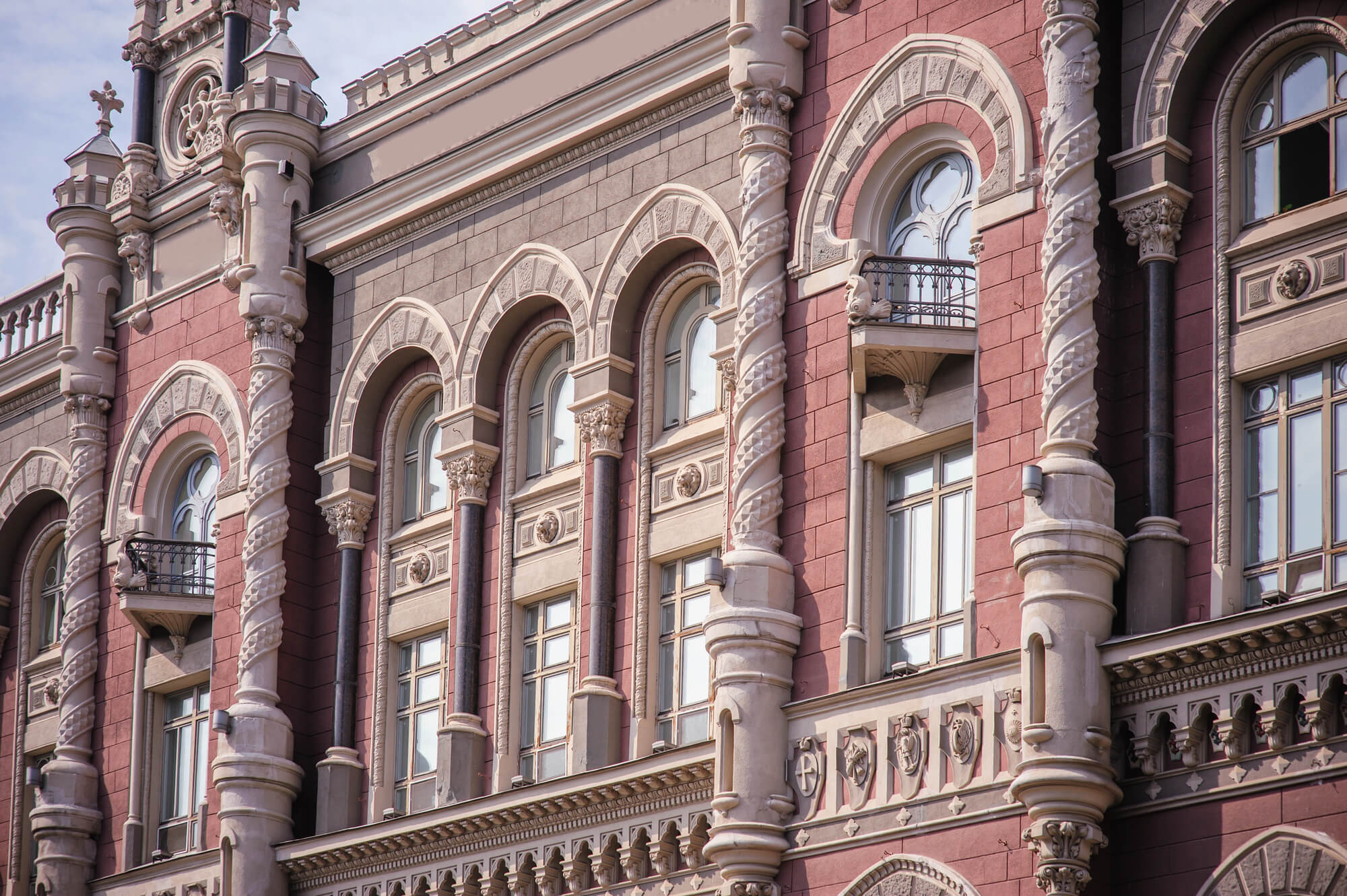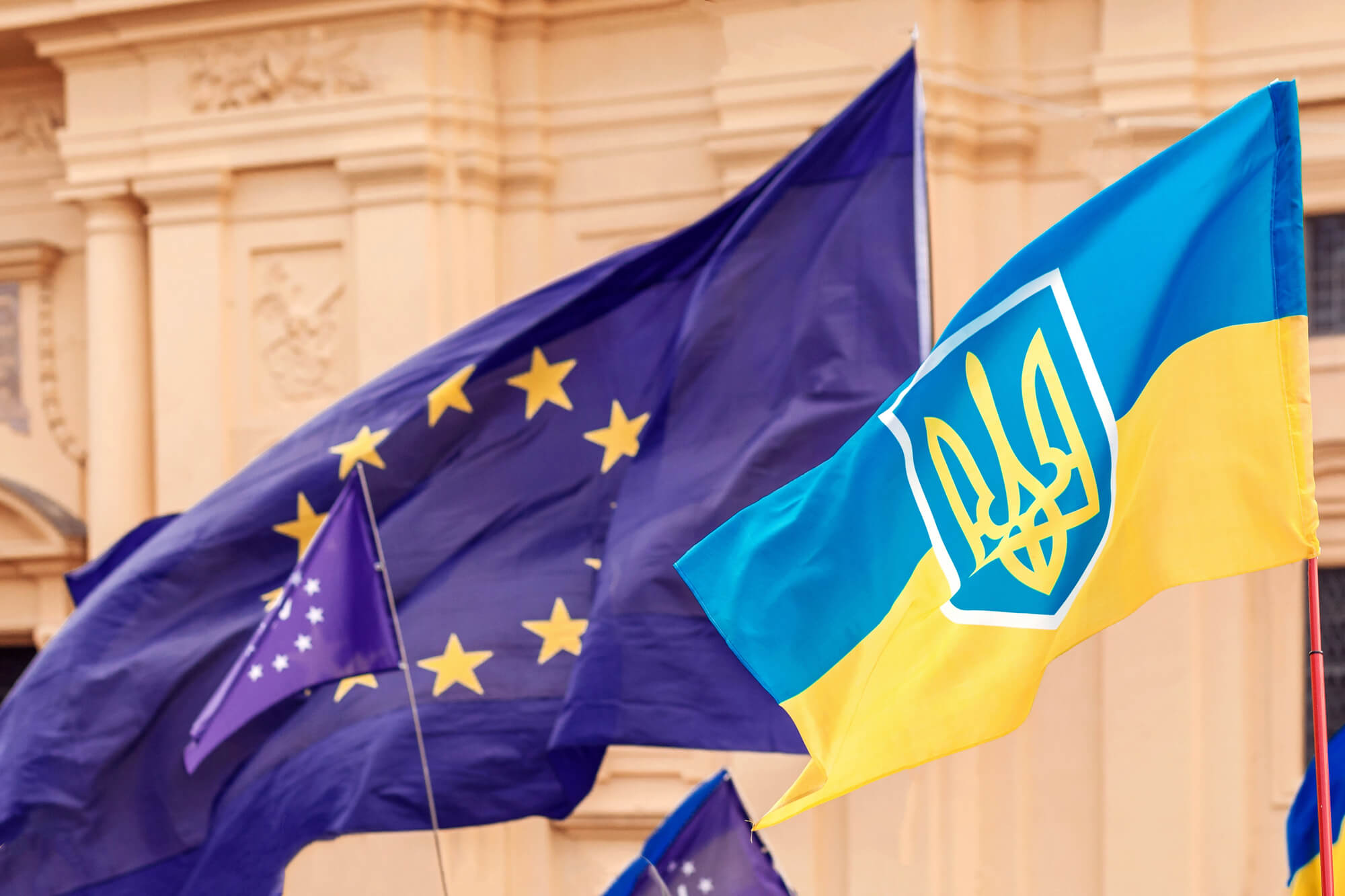“This is an experiment. The IMF experimenting on us”. That’s how the oligarch Ihor Kolomoisky explains why people are emigrating from Ukraine, and those who are left receiving meager salaries. However, such statements are heard not only from Kolomoisky. The activities of the International Monetary Fund (IMF) in Ukraine remain one of the most controversial issues among Ukrainian politicians and journalists. At the same time, meaningful discussion is often replaced by cliches and myths that distort the idea of the organization as such as well as the nature of its interaction with Ukraine.
Since the beginning of 2018, VoxCheck has сhecked 42 statements made by Ukrainian politicians about the IMF. Only in 14 cases their words were proven to be true. In this article, we will sort through the information on the IMF and refute the main myths about its activities in Ukraine.
IMF. WHAT IS IT?
The IMF provides financial assistance to countries in crisis and macroeconomic instability, manifested by rapid depreciation of the national currency, capital outflow, inability to meet obligations to creditors, eventual economic downturn. IMF loans are provided to stabilize the economy under conditions of performed structural reforms.
The foundations of the organization were defined at the Bretton Woods Conference in 1944, Organization came into formal existence in 1945 after the signing of the relevant agreement by founding member countries.
To put it in a simple way: when a country, member of the IMF, faces a crisis and needs additional funds to overcome it, it signs an agreement with the IMF, under which it undertakes to provide reforms and receive funds for it. The IMF provides loans to help overcome the crisis and prevent it from spreading to other countries. Therefore, the main purpose of the IMF is to prevent the spread of the economic crisis. While the World Bank, which was created simultaneously with the IMF, deals with the development of the economies of individual countries.
IMF members involved in and contributing to its work are 189 UN member states, including Ukraine. Cuba and Taiwan – former members. North Korea, Andorra, Liechtenstein, Monaco, Nauru, South Sudan, Vatican and unrecognized states are not members of IMF.
Where IMF gets its money?
The budget of the Fund is based on contributions from member countries according to their quotas and on loans from other countries and organizations. The quotas of the member countries depend on the size of their economies and are calculated on the basis of four indicators: GDP (50% of quota), openness (30%), stability (15%), reserves (5%). Member countries also have the right to vote in the Fund, depending on their contributions, and the right to borrow money within the quota in the event of problems.
Reserves of the IMF are accounted for in the so-called Special Drawing Rights (SDR), from which the international reserve asset is formed, and which is subsequently used to lend money to the member countries of the Fund. As of 2016, total allocated amount was 204 billion SDR or the equivalent of 285 billion USD. If needed, SDR are exchanged for freely convertible currencies, which include US dollar, Euro, Yen, Pound and the Yuan (starting from 2016).
All loans are issued and credited to in the SDR, but because most people do not know the rate of SDR to other currencies, news (other media) are mainly reporting the volume of a loan in one of the major world currencies, for example, in US dollars or Euros.
Ukraine also has its own quota of about 2 billion SDR, which is 0.42% of the IMF’s funds. This gives Ukraine 21 583 votes in the organization, or 0.43% of all votes.
What are the IMF interest rates?
It is commonly believed, that the IMF has very high rates on loans, and Government can find cheaper way of raising funds. Among those who think so, is politician Vadym Rabinovych.
“Just yesterday, they (IMF) gave with such a devilish grin, under the devilish interest of 9%, which today does not happen in European countries, and even in Asia, this does not happen too, no one takes for more than 6%.”
Vadym Rabinovych, 09.06.09, (01: 38-01: 48)
It is difficult to compare IMF loan rates because the IMF does not distribute this information. But in any case, IMF loans are one of the cheapest. For Ukraine, for example, the average rate on IMF loans is about 3%. For comparison: the rate for the latest issue of Eurobonds (March 2019) was 9,75%. Moreover, if a country faces a crisis, it reduces its chances of borrowing on international financial markets and increases the price of such borrowings
How does the IMF forms lending conditions?
A Memorandum of Cooperation between Governments and the IMF is drawn in the form of government proposals on how to achieve macroeconomic stability and a well-balanced financial system. These conditions are agreed upon in negotiations between the government and the Central Bank of the country with representatives of the IMF. If the government does not comply with the conditions set out in the memorandum, the country’s funding is “put on hold.” However, the IMF cannot cancel the program with the country by itself. This can only be done by the government, either explicitly or implicitly (Ukrainian governments did so implicitly, simply by not complying with the terms of the memorandums).
The conditions that accompany IMF loans have caused fierce discussions among domestic politicians and economists.
For example, the leader of the Radical Party Oleh Lyashko, noted the following negative aspects of cooperation with the IMF:
- The IMF provides loans, rather than non-repayable assistance;
- Tranches of the IMF go to public debt repayment, replenishment of gold and foreign currency reserves and, in some cases, to finance the state budget deficit;
Yes, the IMF provides loans, not a non-repayable assistance. The organization’s charter defines three goals of the loan:
- debt repayment
- replenishment of central bank reserves,
- financing the budget deficit.
IMF is an “emergency call” when macroeconomic stability in the country is in jeopardy and, accordingly, it cannot raise funds elsewhere (or, maybe, can, but in a much more expensive way). If the IMF would provide non-repayable assistance, the funds would have run out very quickly. Simply because, the taxpayers of countries that do not need the assistance of the IMF would not be prepared to pay for the wrong policy of the governments of other countries that need such assistance.
You can read the discussion between Oleh Lyashko and the VoxUkraine Editorial Board in the “Great Discussion on VoxUkraine or “A dozen knives stabbed in the back of the IMF “
Sometimes, there is simply an outright lie regarding the IMF. As, for example, the one from Vadym Rabinovych. As if the IMF, in the face of reforms, forces to cut down the forest, cancel pensions and raise tariffs:
“This is the IMF saying: cut the forest, abolish pensions, raise tariffs.”
Vadym Rabinovych, NewsOne (07: 38-07: 59)
All terms of the agreements between the IMF and Ukraine can be found in the memorandums that are published in open sources. For forests, for example, it is the EU, not the IMF, who insists on the abolition of the moratorium on timber exports, since such a trade restriction is contrary to the Association Agreement. However, it is required not to cut down forests, but to replace the moratorium on exports with a regulation that will not violate trade agreements and distort market mechanisms (for example, a ban on deforestation).
As for pensions, the IMF’s main requirement is to maintain a balanced budget policy that is necessary for the stability of the hryvnia and the economy as a whole. The IMF has never demanded the abolition of pensions.
The IMF also recommended not to “raise” tariffs, but to equalize tariffs for households and industry, in order to create opportunities for the emergence of a full-fledged energy market. So, since May 2019, gas tariffs for households have been reduced due to falling prices on the world market and, accordingly, prices for industrial consumers in Ukraine became lower.
The terms of the IMF memorandum contribute to macroeconomic stability and are intended to facilitate the repayment of loans received from the Fund for the country. In some cases, reforms that have low support of the political class are stated in the Memorandum by governments or individual in order to have additional leverage for their implementation. In the case of Ukraine, such reforms were: the creation of an anti-corruption court, transparent privatization, criminalization of illegal enrichment of politicians and officials, etc.
Meeting the IMF requirements and receiving tranches under the program serves as a benchmark for other international lenders, as well as for domestic and foreign investors, that the situation in the country remains stable and the government successfully implements the approved reforms. Instead, “falling out” from the IMF program is a negative signal for other lenders and investors.
Do countries become poor because of their cooperation with IMF?
“This is an experiment. The IMF conducting an experiment on us. On living people, on normal country. That’s it, from a rich country to a poor one. Like all the countries in which it was present (IMF) before. Down the drain”.
Ihor Kolomoisky, 37:34 – 37:46
“How cynical they have to be? This power authority has clearly followed the instructions of the IMF over the past 3 years, and as a result, Ukrainians have lower income than our Moldovan brothers and the lowest economic development in all European countries. ”
Oleh Lyashko, 00:16 – 00:31
The IMF provides financial assistance to countries, when they face or risk facing serious economic problems that may spread to other countries, regardless of their wealth or poverty.
The influence of the country’s participation in IMF programs on its economic development has been studied by economists for a long time. There are different estimates of this impact.
For example, Barro&Lee (2005) says that participation in IMF programs reduces economic growth, so countries must “commit themselves not to participate in IMF programs” (obviously, such commitments presumes an economic policy that avoids significant crises in which IMF assistance becomes necessary). Other authors study this issue in more detail and conclude that participation in IMF programs has a positive effect on economic growth, but only when the country fulfills the program’s conditions and improves the quality of its institutions.
Other studies find some positive effects of participation in IMF programs: lowering the likelihood of a currency crisis, inflow of private capital (if the country avoids default), accumulation of foreign exchange reserves and less sensitivity of the country to economic shocks.
The IMF is in constant dialogue with member countries and determines which programs or lending conditions have given the expected effect and which are not, and why. This experience is taken into account in the future activities of the fund. In addition, since 2001, the Fund has an independent office for evaluating its activities. The IMF policy is being discussed continuously by the world expert community in the public domain.
Is Ukrainian poverty a result of the work of the IMF?
We can not say how Ukraine would evolve if it did not cooperate with the Fund at all. Most likely, its level of economic development would be lower now, because the IMF provides not only loans, but also technical assistance – in particular, in the development of regulations.
In addition to aforementioned, over the 25-year history of cooperation with the IMF, Ukraine failed to successfully complete any of the programs, due to non-compliance by Government with the terms of cooperation.
Nor can it be argued that Ukraine has turned into a poor country as a result of cooperation with the IMF. The last two programs of cooperation with the IMF were signed in order to overcome the consequences of a major economic crisis that unfolded in 2014-15, due to a significant decline in production, the reduction of trade and the loss of part of the territory during Russian aggression.
The GDP decline in 2014-15 was 6.6% and 9.8% respectively. The national currency during that time depreciated from 8 UAH per US dollar to almost 30 UAH per US dollar, reaching its minimum in February 2015. The gold and foreign exchange reserves necessary to maintain financial stability were at a critically low level. The IMF’s funds were aimed at maintaining the balance of payments, replenishing gold and foreign exchange reserves and balancing the budget needed to stabilize the economy and the national currency.
Attention
The authors do not work for, consult to, own shares in or receive funding from any company or organization that would benefit from this article, and have no relevant affiliations





